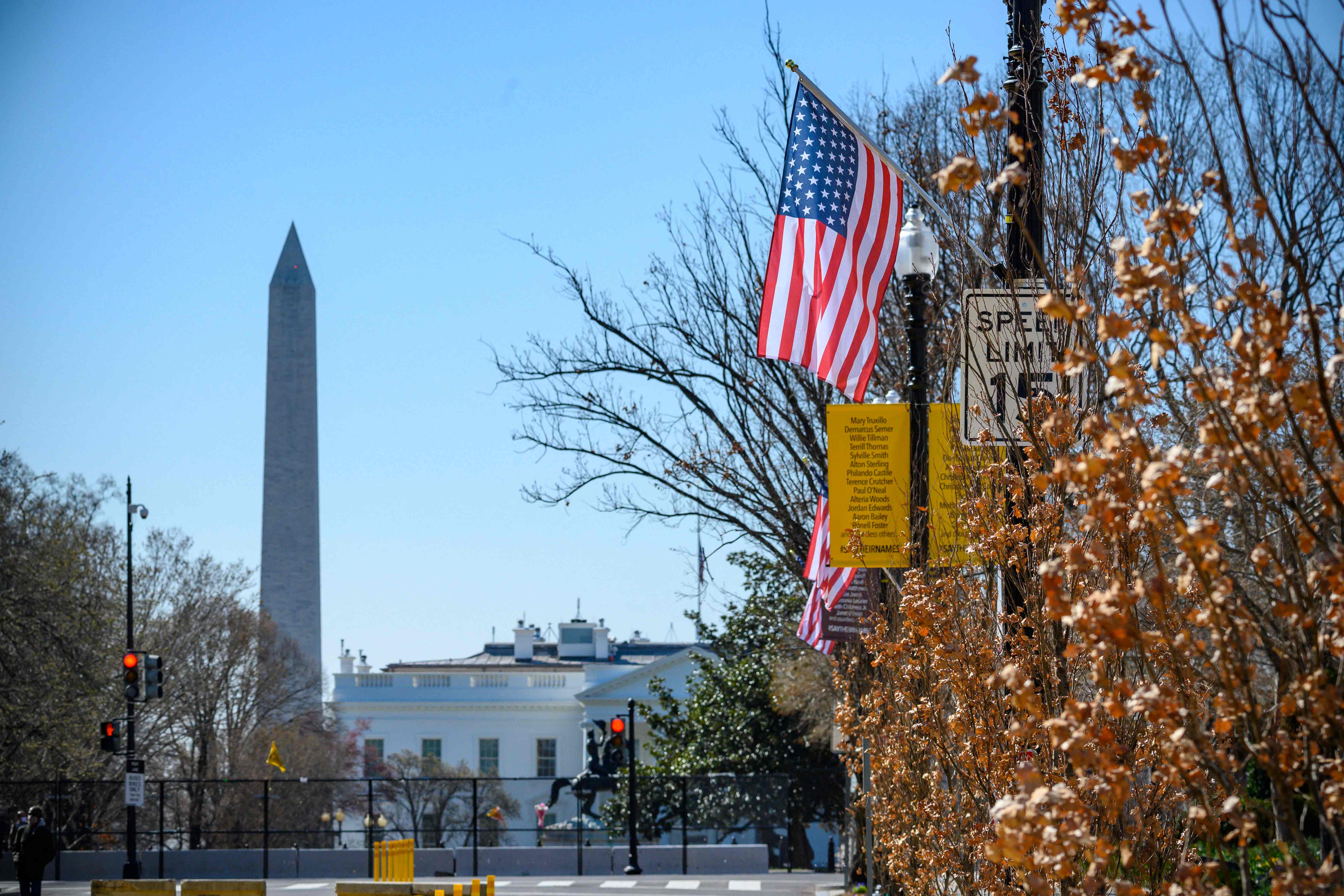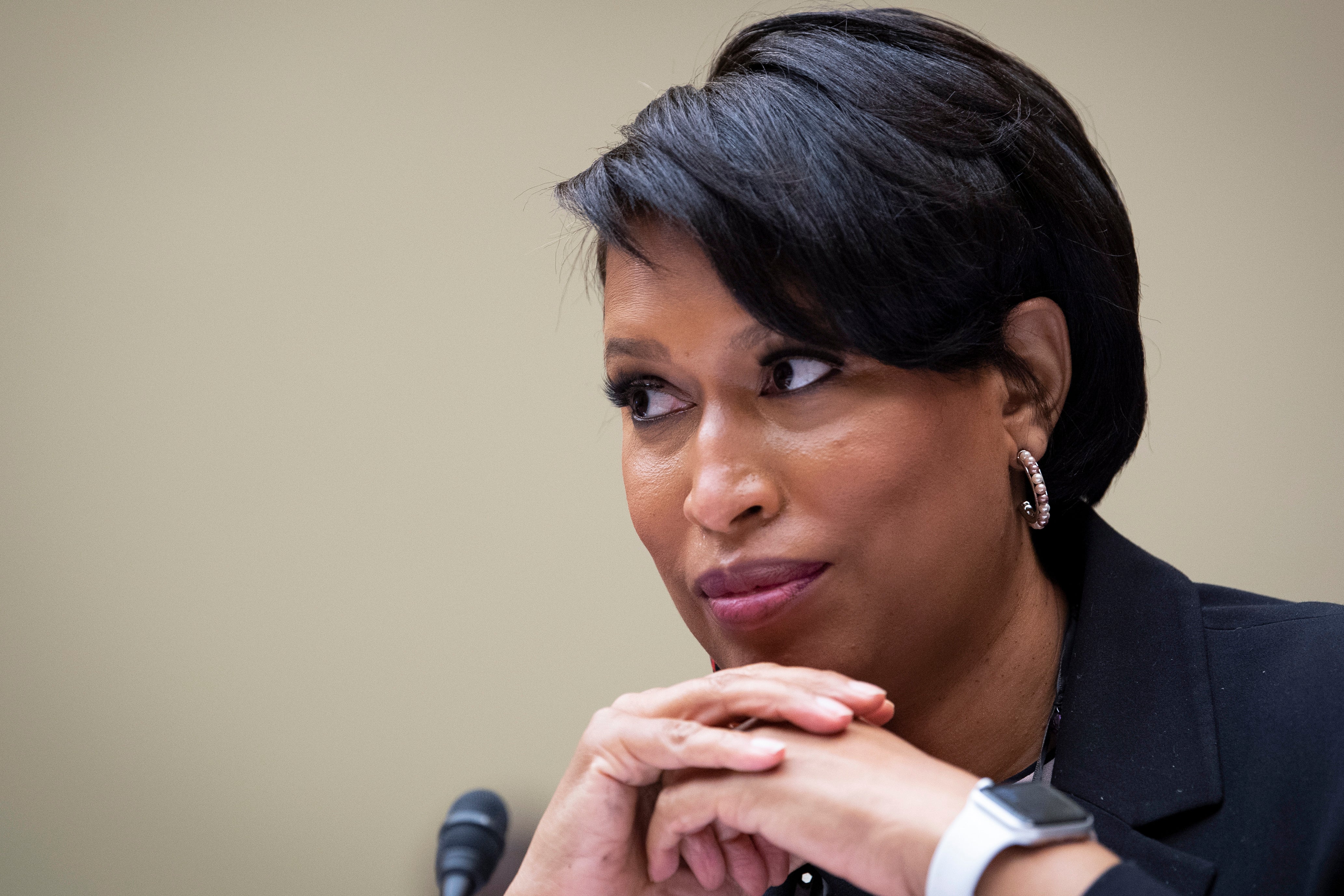The state of Washington DC statehood: What House Democrats are proposing and why it will probably fail
Democrats call it fixing systemic inequality that is critical to achieving racial justice. Republicans call it a power grab to pack Congress, writes Justin Vallejo

Your support helps us to tell the story
From reproductive rights to climate change to Big Tech, The Independent is on the ground when the story is developing. Whether it's investigating the financials of Elon Musk's pro-Trump PAC or producing our latest documentary, 'The A Word', which shines a light on the American women fighting for reproductive rights, we know how important it is to parse out the facts from the messaging.
At such a critical moment in US history, we need reporters on the ground. Your donation allows us to keep sending journalists to speak to both sides of the story.
The Independent is trusted by Americans across the entire political spectrum. And unlike many other quality news outlets, we choose not to lock Americans out of our reporting and analysis with paywalls. We believe quality journalism should be available to everyone, paid for by those who can afford it.
Your support makes all the difference.To many, the question of whether the nation’s capital should be a state was asked, answered and enshrined in the Constitution more than 200 years ago.
Regardless, the debate will rage for as long as it is unlikely that a president signs into law the 51st star amid America’s red and white stripes.
The White House has formally supported legislation that would establish Washington DC as the “Douglas Commonwealth”, the nation’s first new state since Alaska and Hawaii joined the union in 1959.
The Office of Management and Budget said in a statement of administration policy that it endorsed House bill HR51. Known as the Washington DC Admissions Act, it’s likely to pass the Democrat-controlled House before withering on the vine of an evenly-split Senate like an identical bill in June 2020.
While the difference this year is the one-party control of the White House and both chambers of Congress, it’s almost guaranteed not to land on the Resolute Desk for the signature of Joe Biden short of the abolition of the filibuster (more on that later).
The arguments for and against the idea land firmly in each tribe of conservative and progressive politics. Republicans call it a power grab to pack Congress – just as they accuse Democrats of wanting to “pack” the Supreme Court. Democrats call it fixing systemic inequality that is critical to achieving racial justice.
Before dissecting those team-based extremities of the left and right wings in the US, it’s worth revisiting why the District of Columbia is, by design, not already a state to begin with.
Like most American origin stories, it dates back to the Founding Fathers and the Constitution ratified in June 1788.
Specifically, Article 1, Section 8, Clause 17, which says Congress shall have power to “exercise exclusive Legislation in all Cases whatsoever, over such District (not exceeding ten Miles square) as may, by Cession of particular States, and the Acceptance of Congress, become the Seat of Government of the United States”.
Founding Father James Madison, who went on to be the fourth president of the United States, gave the reasoning behind that provision in Federalist 43.
He said complete authority at the seat of government was an “indispensable necessity”.
“Without it, not only the public authority might be insulted and its proceedings interrupted with impunity; but a dependence of the members of the general government on the State comprehending the seat of the government, for protection in the exercise of their duty, might bring on the national councils an imputation of awe or influence, equally dishonourable to the government and dissatisfactory to the other members of the Confederacy.”
In other words, the concern was that a capital that doubled as a state gave its representatives in government an outsized level of influence over other states. The seat of the federal government should be neutral in matters of the sovereign states, they argued.
While the US Constitution has so far proven difficult to amend, proponents of turning the District of Columbia into the “Douglas Commonwealth” have been gradually chipping away at the institutions and opinions standing in the way.
One influential recent event in the debate was the breach of the US Capitol by pro-Trump rioters on the day Congress formally counted the Electoral College votes in favour of Mr Biden.
As the House Oversight and Reform Committee met on 22 March to discuss HR 51, the Washington DC Admission Act, the Constitution came up against the chaos of 6 January.
“If you want to argue originalism, what was of concern to the Founding Fathers in creating a federal district was to protect the government from riots, like Shays’ Rebellion,” DC Council Chairman Phil Mendelson said, via Roll Call.
“The District came to your rescue, yet we were impeded in trying to send the DC National Guard because we are not a state.”
As mayor of a city, Muriel Bowser did not have the authority to send in the National Guard. As governor of a state, she would.
A day after the riot, the long-term advocate for statehood invoked the security risk of domestic terrorism to demand Congress transfer command of the DC National Guard to the city’s mayor and get a DC statehood bill on the desk of Mr Biden within 100 days.

Before “rebellion” became the lightning rod for DC statehood, Ms Bowser’s argument weaved together the refrain of “no taxation without representation” with today’s civil rights lobby against systemic racism.
In her “DC statehood“ website, she outlines the 200 years of systemic inequality that has denied the full voting rights, citizenship and representation in Congress for residents of Washington DC, despite paying more per capita than any state.
DC now has 712,000 residents, comparable with Delaware and Alaska, and more than Vermont and Wyoming. All of those states benefit from two senators each, regardless of population (giving Republicans a slight advantage from sparsely populated rural areas that lean conservative), and a differing number of congressmen and women. DC, conversely, has no senators and only a non-voting congressional delegate who is empowered to draft legislation, but not to vote.
“The District’s lack of representation is a wider oppression and disenfranchisement of Black Americans,” the website says.
That justification for statehood was echoed in the Biden administration’s official endorsement of the HR51 bill.
“This taxation without representation and denial of self-governance is an affront to the democratic values on which our nation was founded," the OMB statement says.
In response attorneys general from 22 states sent a letter to the president and congressional leaders calling the proposed legislation unconstitutional and saying it would require an amendment.
“Not only does Congress lack the authority to create an entirely new state out of the District, but it also does not have the authority to reduce the size of the District to the equivalent of a few federal buildings and surrounding parks,” the letter said.
While the Constitution is deliberately difficult to amend, it’s not impossible, as 27 previous amendments have shown. The 23rd Amendment in 1961 gave residents of DC the right to vote in presidential elections and the Electoral College.
Seemingly aware of an uphill battle to change the Constitution, the Democrats have devised a way to circumvent its provisions in their latest bill by arguing the Constitution sets only a maximum size of the federal district “not exceeding 10 miles” – but not a minimum.
They want Congress to redraw the boundaries of a new federal district to a two-mile radius around the White House, Capitol, Supreme Court and National Mall, to be called the National Capital Service Area.
Constitutional scholars will continue to fight over that, as did the Cato Institute legal theorist Roger Pilon in testimony to Congress against the concept in 2014, where he said:
“Their mention of “ten Miles square,” together with Congress’s nearly contemporaneous creation of the District in 1790 from ten square miles of land ceded to the federal government by Maryland and Virginia, is strong evidence of what they intended.”
Either way, Democrats have a reason to back the bill (it would likely give them two extra seats in the Senate), for the same reason Republicans would oppose it.
“This bill is about two new Senate seats,” ranking Republican committee member James Comer said during the House committee hearing on the bill.
It’s also why the GOP wouldn’t support the statehood of Puerto Rico (population three million), as Senate minority leader Mitch McConnell said in a September interview with the Guy Benson Show, “that’s four new Democratic Senators in perpetuity”.
“And here’s what they’re going to do after they change the filibuster: they’re going to admit the District [of Columbia] as a state. They’re going to admit Puerto Rico as a state,” he said. “And once they get a hammerlock on the Senate, they’re going to then pack the Supreme Court.”
About that filibuster.
The HR 51 bill, the debate, the vote, and the outcome are all academic given the current 50/50 split of the Senate between Democrats and Republicans. A simple majority with the vice president’s deciding vote won’t cut it and the Democrats don’t have the supermajority needed to spoil the filibuster.
Although not part of the Constitution or, its opponents argue, the Founding Fathers’ intentions, the filibuster has developed as a spoiler tactic that can be used by a minority of senators to block legislation favoured by the majority. While for decades during the 20th century it was most often employed by southern senators to block civil rights legislation, such as anti-lynching laws and voting rights, it has become a regular tactic used to frustrate even those bills with wide bipartisan support. Republicans argue it is an essential check against any party exploiting a narrow electoral majority to enact sweeping changes to US society.
Abolishing the filibuster has become a pressing issue for some Democrats, with even previously staunch supporters of keeping the manoeuvre, like former President Barack Obama, changing their position over time.
At the funeral of civil rights icon John Lewis last year, Mr Obama made a major return to political campaigning to call for the “full enfranchisement for the citizens of Washington, DC, and Puerto Rico”.
“If all of this takes eliminating the filibuster, another Jim Crow relic, in order to secure the God-given rights of every American, then that’s what we should do,” Mr Obama said.
Given the HR 51 bill doesn’t have the votes in the Senate, the White House was asked if the current president would be pursuing DC statehood as a major priority of his administration.
Press secretary Jen Psaki told reporters at her daily briefing on Tuesday that it was ultimately up to Congress to pass legislation and send it to his desk.
“He supports it, so he’d be happy to sign it, but in terms of the rank priorities I’m not going to get into a situation of doing that,” she said.
Join our commenting forum
Join thought-provoking conversations, follow other Independent readers and see their replies
Comments